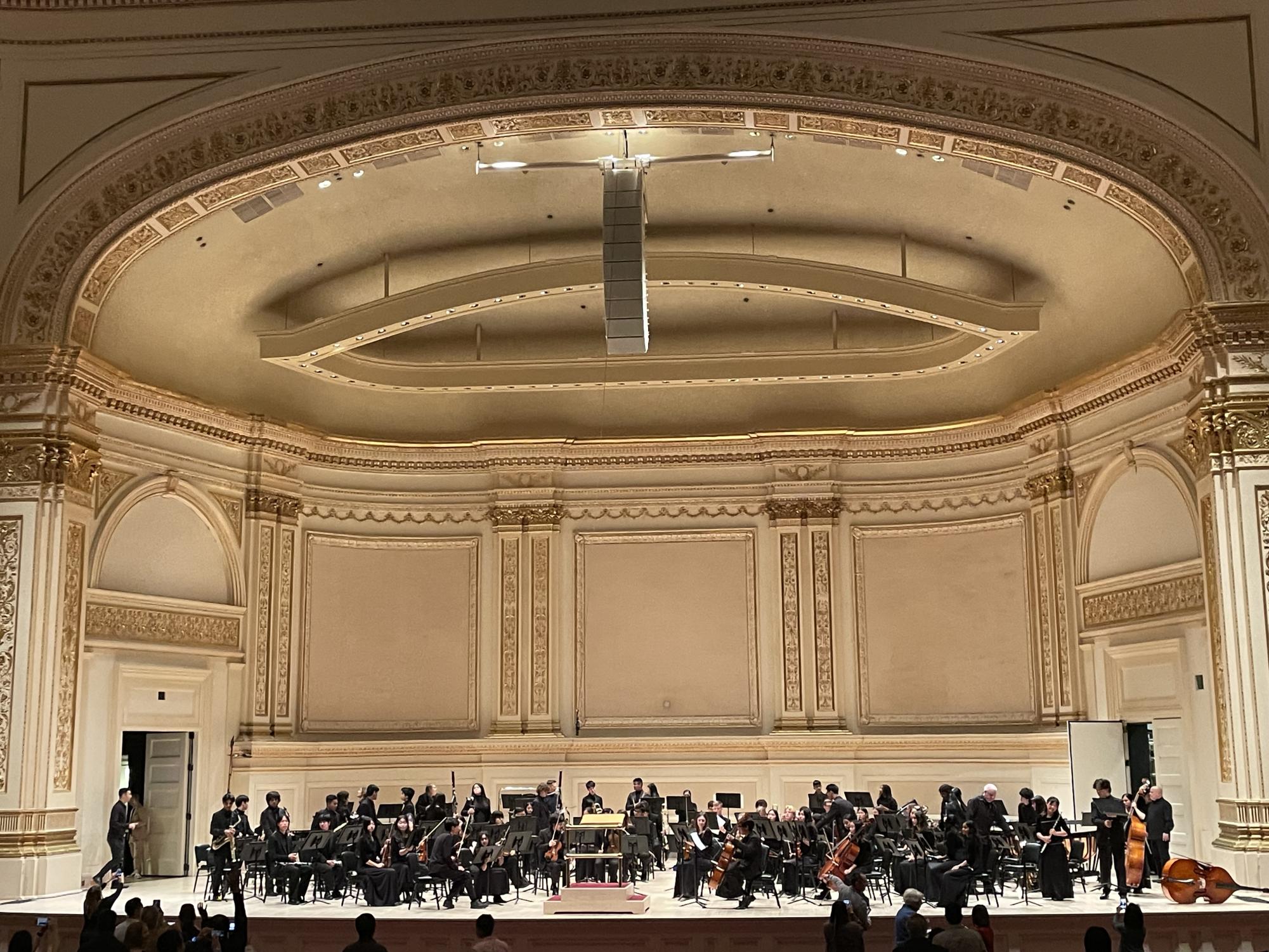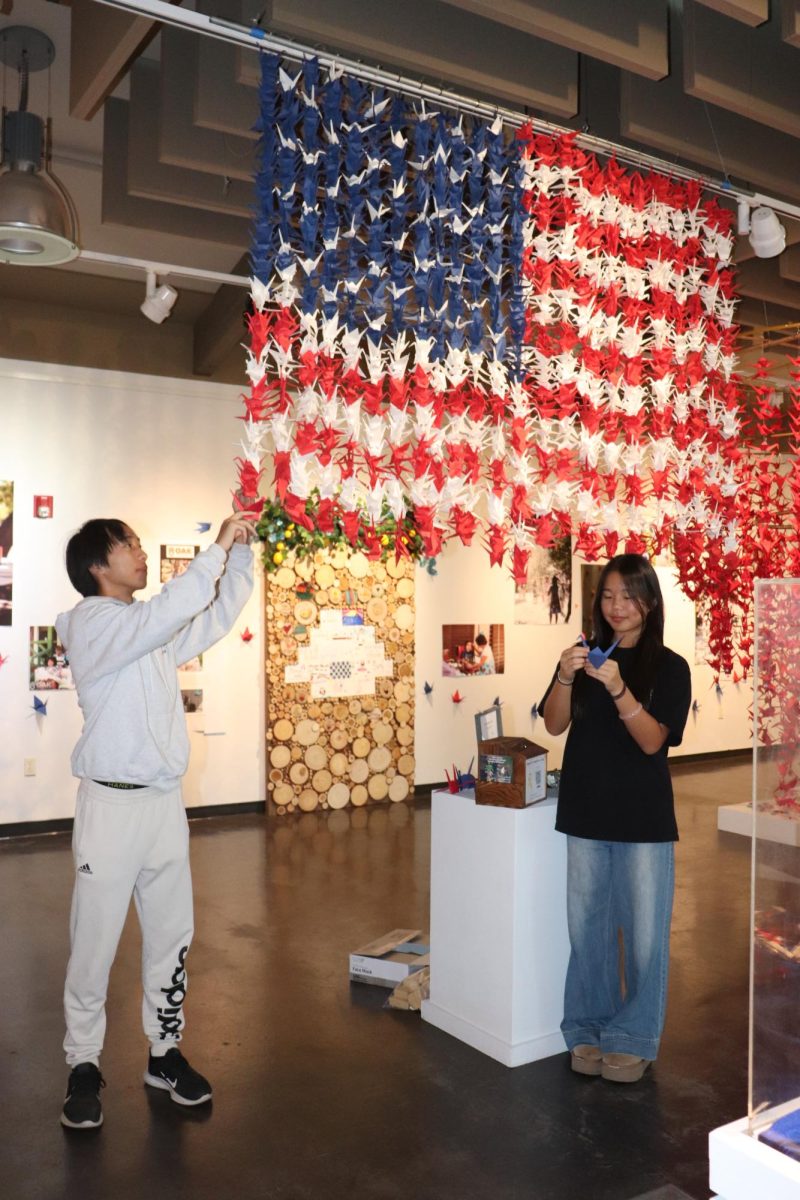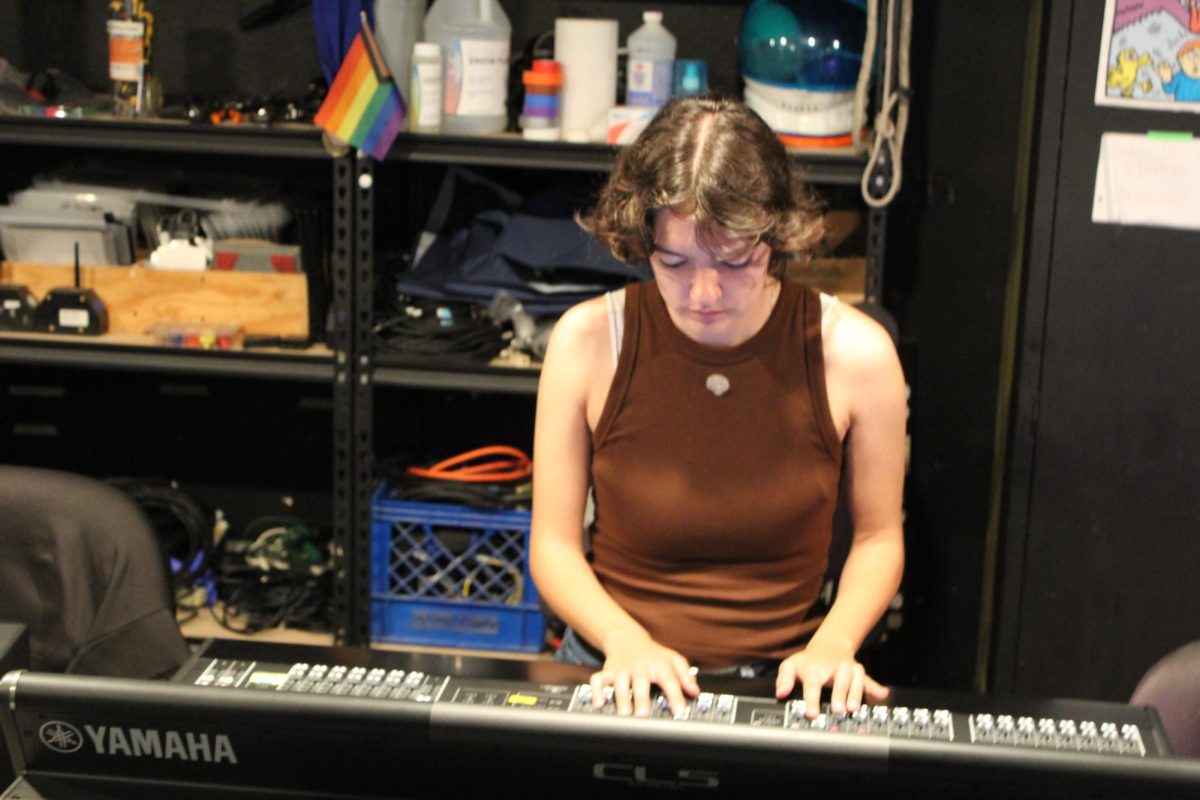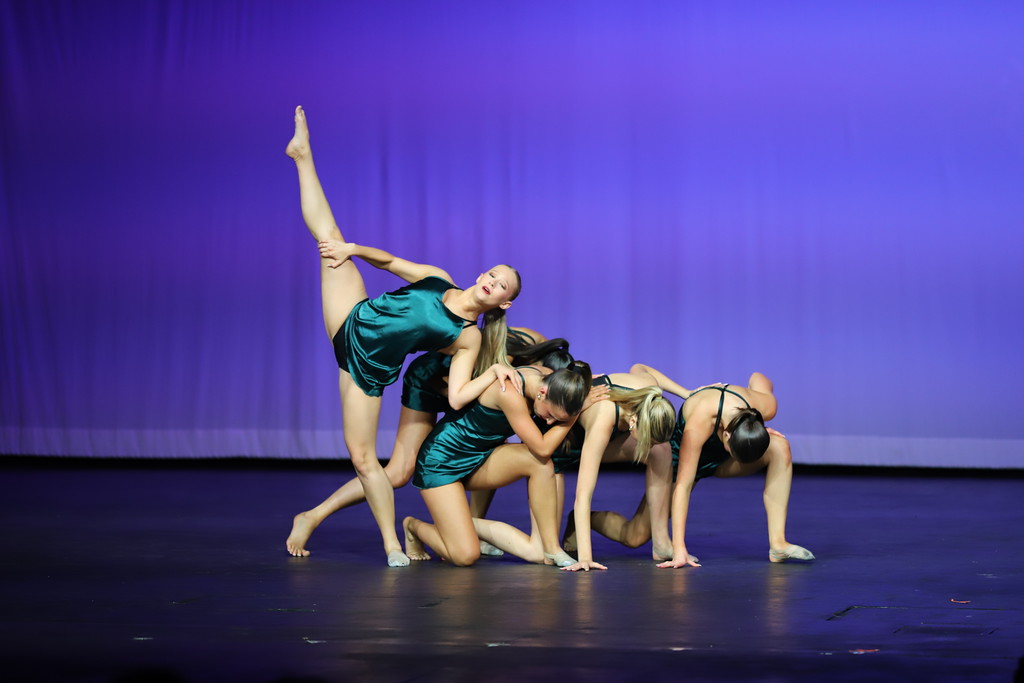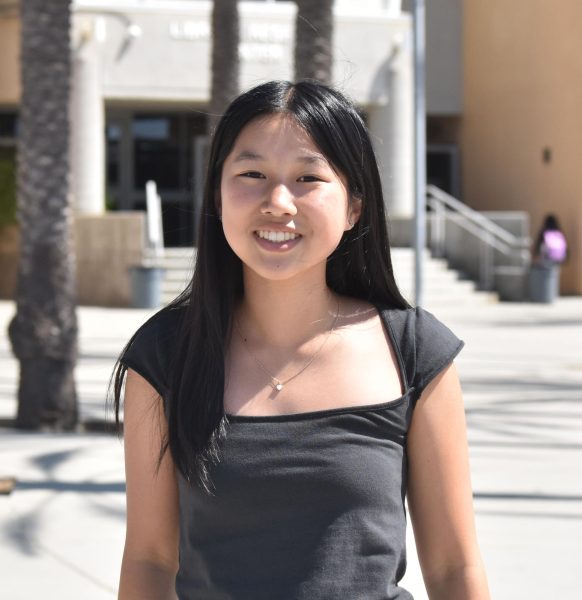Bright, fluorescent lights immediately greeted the members of Westview GOLD as they walked through the massive double doors leading to the stage of Carnegie Hall, April 18. The marble walls with gold trim loomed above them, contrasting against the band’s concert black attire and velvet red seats in the audience. As director Mitchell Way lifted his hands, the crowd went completely still, enthralled by the first notes of John Mackey’s explosive piece, “Xerxes,” reverberating throughout the hall.
Flute and piccolo player Maya Keyal (11) said that when she saw Carnegie Hall for the first time, she was in awe of the grand stage and its acoustics.
“It’s different than any hall you perform in,” Keyal said. “You can feel the history radiating through it. It’s very colorful, and when you talk, you can hear the echo. You would play one note, and it would ring for like three seconds throughout the entire hall, and it was very fascinating. No matter what you play, it just sounds good [even if] you mess up.”
Saxophone player Pauline Onishi (11) said that as she prepared to play the opening piece, she was glad that she could finally show off what GOLD had been preparing for so long.
“I was excited because I feel like we put in so much effort and time and work at rehearsals after school, so finally being able to step onto the stage and show what we put all our effort into was exciting,” she said.
Their first piece, named after Xerxes the Great, the king of Persia from 486 to 465 BC, started off loud and forceful right away, alluding to the violent ruler Xerxes was.
“They wanted to open with something really powerful, and “Xerxes” is a very in-your-face and heavy-handed piece because it’s inspired by this guy who invaded a place and destroyed everyone in his way,” Keyal said. “So, we were trying to encapsulate that in the first piece.”
The second piece, “Bicycle Shoppe” by Lisa DeSpain, was a stark contrast to the first one. With a light and playful melody, the song included sounds that wouldn’t normally be part of bands, like whistles and a person imitating a quacking duck.
In this song, Keyal had a short solo on the piccolo, but she said she wasn’t nervous before the performance because it was ingrained in her brain after three months of rehearsal.
“We practiced so much and rehearsed for it so much that at this point, it was kind of like muscle memory,” she said. “It was different [because when you] hear everyone, it echoes in the hall, but when you play yourself, it feels different because it’s echoing just you.”
In the next piece, “Overture to the Dancer of the Dark,” composed by Bjork and arranged by GOLD’s assistant band director Andres Fresquez, the mood shifted to being more slow and grand. While only band played the first two pieces, the final two pieces also included orchestra. Orchestra president Sophia Wang (12) said that as she started playing, she also noticed the differences in sound dynamics between the Westview theater and Carnegie Hall.
“What struck me a lot at Carnegie was sometimes we’d play a note and then we’d have a rest where nobody was playing anything and [the sound] would just go out to the hall like crazy,” Wang said. “It was a sound I’d never heard before, and I’d be really scared to start playing again because I was like, ‘What was that?’”
To close, GOLD played “Outcast,” a piece written for GOLD by composer Julie Giroux, which she based on her friendship with Way.
“I feel like that piece was the highlight because it was made specifically for us,” Wang said. “The person who composed it is friends with Mr. Way, and it was made for us and for this trip, so it was really cool. Us playing it at Carnegie Hall was its premiere, and it was the first time it was ever heard.”
At the end of the last piece, the crowd gave a standing ovation.
“It was a really surreal experience,” Wang said. “I started tearing up because this is my senior year, and this is the last time I’m ever going to be here with these people, with all my best friends playing in Carnegie Hall, which is genuinely so crazy.”
Keyal said that after they took their final bow, she was proud of the work that GOLD put in.
“I was shocked that it went so fast because we’ve been preparing this for multiple months, and then after half an hour it’s all over,” she said. “It’s a pretty crazy feeling thinking all the work that led up to this is suddenly over, but we’re just really proud and it was an experience that was just as exciting as we thought it would be.”
Similarly, Onishi said that the time they spent in New York flew by so fast..
“It didn’t feel real,” Onishi said. “[Keyal] and I kept telling each other, ‘Are we actually here in New York? Are we actually going to perform at Carnegie?’ For me, I feel like it didn’t hit until a lot later after the performance. When we were packing to leave that night, I realized all we worked for was over, which is really sad, but obviously we’re going to work again for another trip or something else.”
Keyal said that performing at Carnegie Hall reflects on GOLD’s accomplishments as musicians.
“I feel like Carnegie is one of the highest moments you can get as a musician,” she said. “After that, you can improve as a musician, but where are you going to get to that’s higher than Carnegie Hall? So, to be able to say we made it there, it feels like this is the pinnacle of where we’re going to be as musicians, and it’s such a crazy achievement to say we did.”
Looking back, Onishi said she never would have imagined that she was going to perform on a stage as renowned as Carnegie Hall, but she said experiencing it was rewarding.
“I never would have expected myself to play at Carnegie because I feel like it’s so prestigious and big in your mind,” Onishi said. “It feels so unbelievable that we were able to perform there and play an incredible piece together. I was able to make a lot of great memories, and I think it was a really great way for me to improve my musicianship. It was the greatest experience in the greatest city in the world.”



